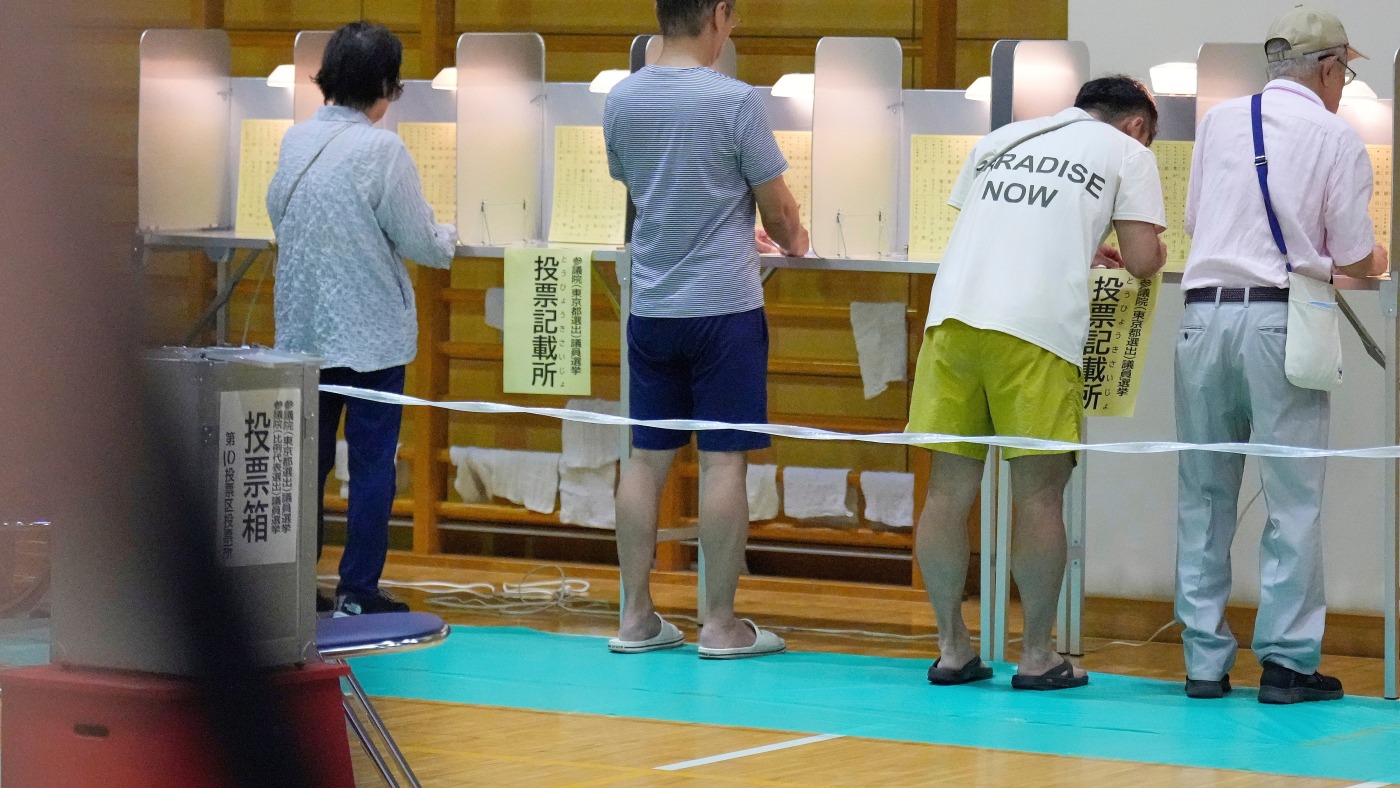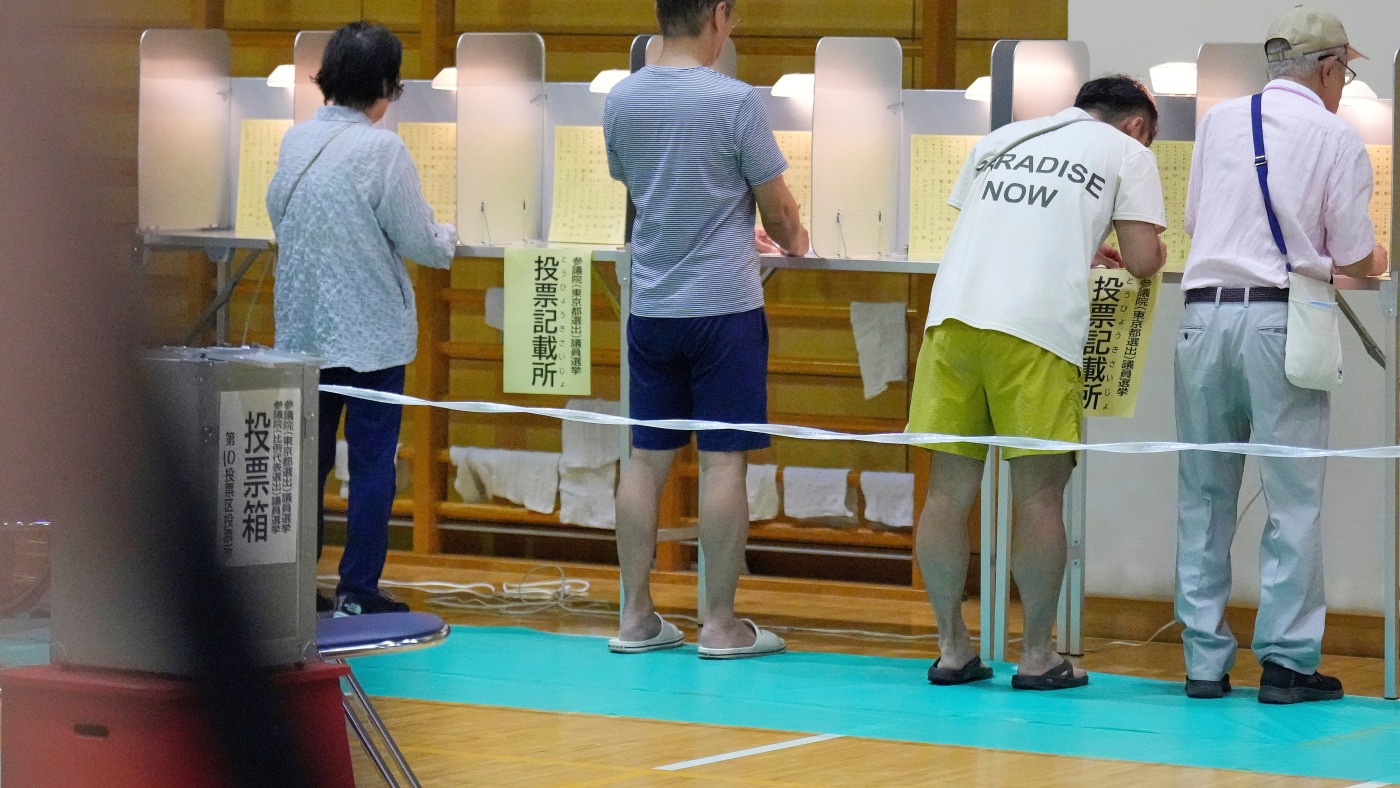The Ishiba Test: A Critical Juncture for Japan
Introduction: The Weight of Expectations
Japan’s recent upper house election was more than a routine political exercise—it was a litmus test for Prime Minister Shigeru Ishiba’s leadership and a barometer of public sentiment amid mounting economic and social challenges. The election results have sent ripples through the political landscape, revealing deep-seated anxieties and setting the stage for a period of uncertainty. As Japan grapples with rising prices, economic stagnation, and social divisions, the outcome of this election carries profound implications for the nation’s future.
A Nation at the Crossroads: The Stakes of the Election
The upper house election was a referendum on Ishiba’s vision for Japan. After ten months in office, the Prime Minister faced an electorate grappling with tangible concerns that went beyond party lines. The key issues driving voters to the polls were:
Economic Concerns: The Pinch of Inflation
Rising prices and stagnant wages have created a sense of economic insecurity among Japanese households. Inflation has eroded purchasing power, and social security payments have added to the financial burden. Voters questioned whether Ishiba’s economic policies were effectively addressing these concerns. The lack of tangible improvements in living standards has fueled dissatisfaction, making economic performance a central issue in the election.
Trade Tensions: The Looming Threat
The specter of US tariffs added another layer of uncertainty to Japan’s economic outlook. Voters were wary of the potential impact on Japan’s economy and its relationship with a key trading partner. The looming trade tensions have highlighted the need for a robust economic strategy that can navigate global uncertainties while protecting domestic interests.
Immigration: A Surge in Populist Sentiment
A surge in right-wing populist sentiment has fueled debate over immigration policies. Stricter measures targeting foreign residents and visitors gained traction, reflecting anxieties about national identity and social cohesion. The election results may embolden opposition parties to push for more restrictive immigration policies, further polarizing the political landscape.
Political Scandals: Eroding Public Trust
Lingering financial scandals involving the ruling party have further eroded public trust. Voters expressed outrage over corruption and demanded greater accountability from their leaders. The election served as a platform for voters to express their discontent with the political establishment, highlighting the need for transparency and reform.
Ishiba’s Challenges: A Wobbly Foundation
Prime Minister Ishiba inherited a nation grappling with deep-seated challenges. While he brought a vision of reform and renewal, his administration faced significant headwinds that tested his leadership and policy agenda.
Erosion of Public Trust: A Legacy of Scandals
The legacy of previous scandals and a perceived disconnect between the government and the people undermined Ishiba’s efforts to build confidence. The election results reflected widespread voter dissatisfaction with the government’s performance, highlighting the need for greater transparency and accountability.
Economic Stagnation: The Burden of Slow Growth
Years of slow growth and deflation have created a sense of pessimism among the Japanese public. Ishiba’s economic policies were under pressure to deliver tangible results quickly. The election outcome underscored the urgency of addressing economic inequality and providing greater security for struggling households.
Social Divisions: Bridging the Gaps
Debates over immigration, social security, and other issues exposed deep divisions within Japanese society. Ishiba needed to bridge these gaps to forge a national consensus. The election results highlighted the need for open dialogue, compromise, and a commitment to addressing the concerns of all citizens.
Loss of Lower House Majority: A Weakened Position
Prior to the upper house election, Ishiba’s coalition had already lost its majority in the more powerful lower house. This weakened his position and made him vulnerable to no-confidence motions. The election setback further diminished his political capital, raising questions about his future as Prime Minister.
The Election’s Impact: Instability and Uncertainty
The election results sent shockwaves through Japan’s political system, reflecting widespread voter dissatisfaction with the government’s performance. The outcome has ushered in a period of heightened political uncertainty, with significant implications for Japan’s future.
Ruling Coalition’s Setback: A Loss of Momentum
Ishiba’s ruling coalition suffered losses in the upper house, failing to secure a clear majority. This outcome reflected widespread voter dissatisfaction with the government’s performance. The setback weakened Ishiba’s grip on power and raised questions about his future as Prime Minister.
Increased Political Instability: A Leadership Crisis
The election results may embolden opposition parties to push for more restrictive immigration policies, further polarizing the political landscape. The possibility of a leadership challenge or a snap election loomed large, adding to the sense of instability.
Policy Gridlock: The Challenge of Governance
With a divided parliament, enacting meaningful reforms would become even more difficult. Policy gridlock could hinder Japan’s ability to address its economic and social challenges effectively. The election outcome highlighted the need for greater transparency, accountability, and responsiveness in government.
Rise of Opposition Forces: A Shift in the Political Landscape
The election results may embolden opposition parties, creating new opportunities to challenge the ruling coalition and advance alternative policy agendas. The rise of opposition forces could reshape the political landscape, forcing the ruling party to adapt or risk further losses.
A Divided Nation: Implications for the Future
The implications of this election extend far beyond the immediate political fallout. They reflect deeper trends and fault lines within Japanese society, highlighting the need for bold leadership and innovative solutions.
Economic Anxiety: Addressing Inequality
The election outcome underscores the urgency of addressing economic inequality and providing greater security for struggling households. Policies aimed at boosting wages, reducing the cost of living, and strengthening social safety nets are essential to restore public confidence in the government’s economic agenda.
Social Cohesion: Fostering Inclusivity
Japan needs to find ways to bridge social divisions and foster a more inclusive society. This requires open dialogue, compromise, and a commitment to addressing the concerns of all citizens. Policies that promote social cohesion and inclusivity are crucial to building a more united and resilient nation.
Political Reform: Restoring Trust
The election results highlight the need for greater transparency, accountability, and responsiveness in government. Reforms are needed to restore public trust and ensure that the political system serves the interests of the people. Strengthening democratic institutions and promoting ethical leadership are essential to rebuilding public confidence.
International Relations: Navigating Global Challenges
Japan’s ability to navigate complex international relations will be crucial in the years ahead. This requires strong leadership, strategic thinking, and a commitment to multilateral cooperation. Building strong alliances and fostering diplomatic relations are essential to protecting Japan’s interests in an increasingly uncertain global landscape.
Charting a New Course for Japan
The upper house election has delivered a stark message: Japan is at a crossroads. The path forward requires bold leadership, innovative solutions, and a renewed commitment to addressing the challenges facing the nation. The next chapter in Japan’s story remains unwritten, but it will be shaped by the choices made in the aftermath of this pivotal election. As Japan navigates a complex landscape of economic pressures, social divisions, and geopolitical challenges, the need for unity, vision, and determination has never been greater. The Ishiba test has revealed the depth of the nation’s challenges, but it has also presented an opportunity for renewal and reform. The future of Japan hangs in the balance, and the choices made today will determine the course of its tomorrow.








